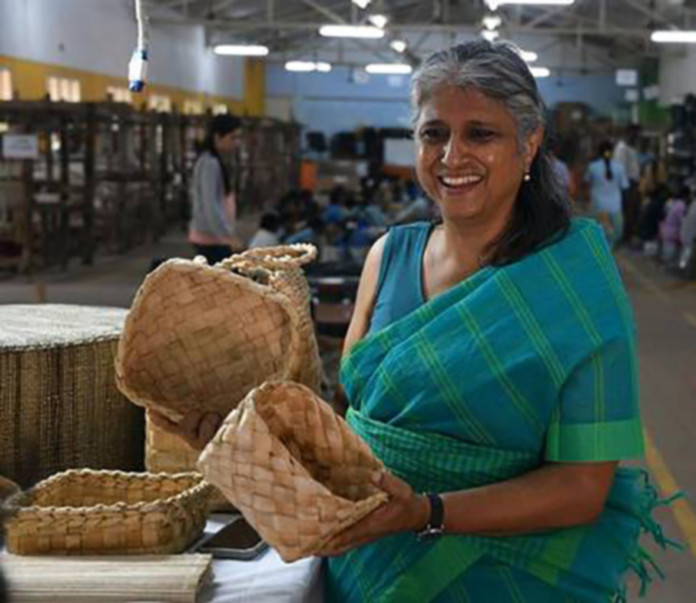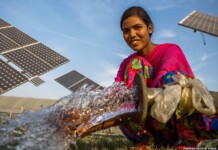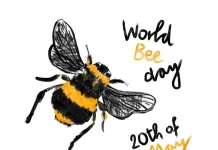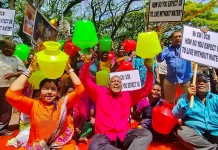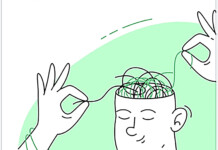A seismograph would have warned us about the Tsunami that devastated our shores in 2004. Unfortunately, COVID-19 came with no warning.
Machines that were humming and hands that were working came to a grinding halt. Since this was a global phenomenon, everyone was affected. Sales dwindled in this uncertainty, manufacturing stopped as cancellations and postponed shipment plans came in, people were advised to stay at home and not step out to work.
In India itself an estimated 40 million people lost their jobs, mostly from unorganized sectors. In the handicraft sector, the impact has been direct and severe, bringing livelihoods and businesses to a painful standstill.
Our immediate concern was for the artisans. We built teams to speak to each artisan on our data base. We arranged that each of the artisan’s account be credited with an amount to tide her through. While this gesture was appreciated, the artisans felt that they wanted to do something to actually earn this amount.
Masks to the Rescue
Every setback brings a newness and if grasped can give returns! This pandemic has brought the need for all of us to wear masks. Masks became the buzz word. What else now but to start making these masks?
The Industree Foundation built curriculums to show with visual and verbal aids on how to make a mask. We sent these videos to artisans called them on their phones for instructions to make masks. Quality teams monitored these products closely. Masks were then distributed first among artisans and their families and then to the outside market. Every artisan started making them and earning a fair amount. This made our women artisans get a sense of being productive when time seemed to be pausing indefinitely. The women earned at least something to take care of the basic needs of the family.
We requested our customers if we could take work to the homes of our artisans. Strict monitoring on compliance was done and then artisans started making baskets in the safety of their homes. Raw material was sent to them and then the finished product collected from door steps. This again helped not just to give dignity and work to our artisans but also helped in keeping to delivery dates earlier confirmed to a customer.
Eliminate Middlemen
It is not just the final product that needs to come into the sustainability purview. It is not enough to have a focus on transparency only on the end product made at a production centre. Industree Foundation dives down to the raw material needed for the product.
Tracing back to the plantation where the banana is grown or where the bamboo is cultivated, Industree Foundation works with artisans who are the first set of hands that touch the substrate. We have succeeded in eliminating agents in the middle and now work directly with this woman on the farm.
We train her to use techniques that help in getting the produce almost completely usable. Training on best practices in securing the health of the produce is imparted. Safe and good storage is provided to keep the product in usable condition. All this not just helps in enhancing the skills of the producer but also gets her a higher earning because now we have helped her with reducing waste.
The banana and the bamboo components are transported to the production unit. Under very strict guidelines on quality and on lean manufacturing principles, these simple banana barks or bamboo strips get woven into intricately engineered designs of a product that accentuate a home’s décor.
We will find a vaccine for COVID sooner than later. But life will never go back to the times before this pandemic engulfed the globe. This pandemic has made us realise how fragile our eco system is. This experience has exposed structural faults and made us realise the vulnerability of the traditional supply chains and business models. We have to build sustainable life chains and construct deeply ethical and transparent value chains.
We should work with artisans across all sectors directly without middle men. Our approach to the market should be one of complete commitment and adherence to all the parameters needed to sell a product to an intelligent consumer. This new life will make us evaluate honestly how our actions or non-actions impact our fellow human beings, other living beings and the planet. This pandemic has given us this chance to treat every life as precious and every product created and produced to be sustainable and relevant for the generations to come.
About Industree Foundation
The Industree Foundation (industree.org.in) is a Bengaluru-based NGO. It was established in 2000 to holistically tackle the root causes of poverty by creating an ownership-based, organized creative manufacturing ecosystem for micro-entrepreneurs.
It states that it has reached 30,000 women artisans across India and Africa, through collaborative efforts with organizations such as The Future group, IKEA, The Commonwealth Secretariat, Grassroots Business Fund and National Skill Development Corporation. The foundation was co-founded by Neelam Chhiber. For the past three decades she has been working on regenerative economies, with India’s 200 million strong artisanal work force, by providing design, technical, marketing and management solutions to bridge the urban-rural divide.


